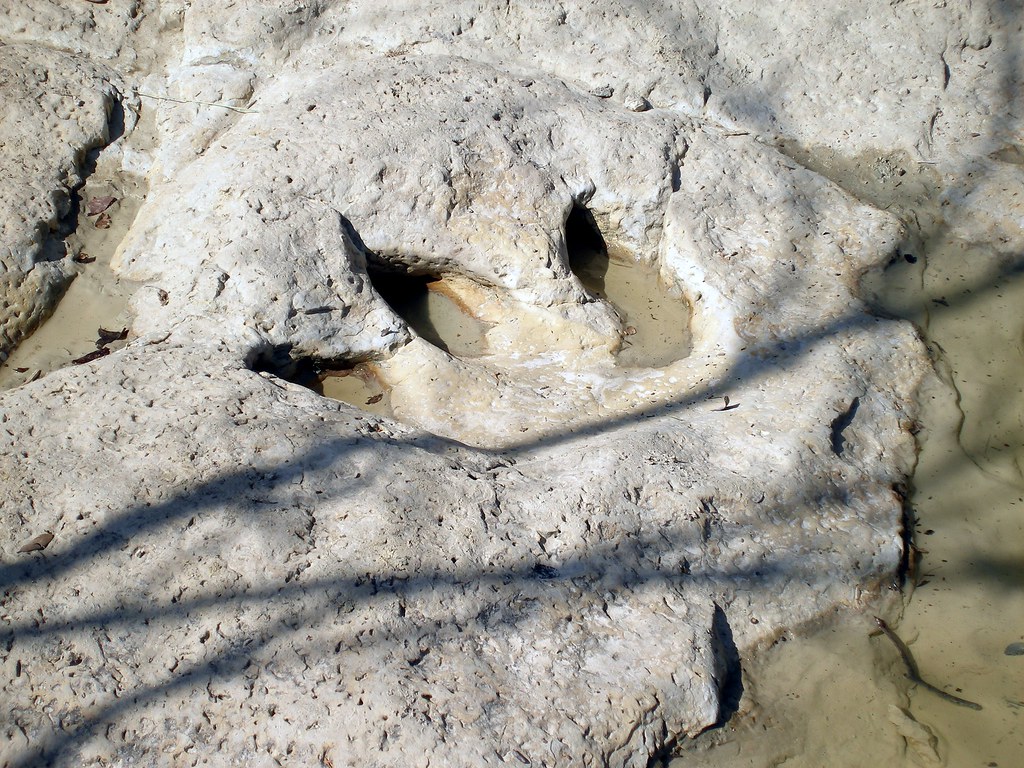Haven't we all been fascinated by dinosaurs, at one time or another? I remember that, as a child, I was always very concerned about what happened to them. It caused me great distress that scientists couldn't figure it out exactly. And I remember the very first time I saw Jurassic Park on the big screen. You wouldn't think that reading a book about dinosaurs would be as satisfying as watching them up there, but you'd be wrong.
The Book
Jurassic Park was a bestseller n 1990, and so popular it became Michael Crichton's signature book. For an author with a career like his, that's really saying something. The story was always destined to become a movie. Crichton originally envisioned it as a screenplay about graduate students who recreate dinosaurs.
As the project developed, Crichton tweaked this original idea. As it stands now, the story opens in 1989 after a series of strange attacks on Isla Nublar in Costa Rica. In a different part of the world, billionaire John Hammond has paleontologist Alan Grant and his graduate student Ellie Sattler collected so they can be brought to Costa Rica.
When they arrive, they're introduced to Jurassic Park. It's a theme park that's filled with dinosaurs. Actual dinosaurs. They've been cloned from ancient DNA found inside gnats and ticks that were fossilized in pieces of amber. Missing DNA has been filled in by reptiles and birds available in today's modern era. Considering the impossibility of the plot to begin with, this explanation seems like it could be somehow plausible so props to Michael Crichton for that.
Hammond glowingly shows off his state-of-the-art facilities to his guests. He's thought of everything, like engineering all the dinosaurs to be female so they can't reproduce. The two scientists aren't alone on the tour. They're joined by mathematician Ian Malcolm and lawyer Donald Gennaro, who represents the investors. Malcolm particularly thinks the park is a terrible idea, bound for doom.
To round off the tour group, Hammond has invited his grandchildren. This is Tim and Lex Murphy. While this is all happening, there's someone on the inside with an agenda of his own. It's Dennis Nedry, and he's secretly working for a rival genetics firm. Nedry shuts down the computer security systems to steal embryos, which he attempts to sneak out of the park.
But he did shut off the security systems, and by the way there's a tropical storm brewing. So Nedry is killed by a Dilophosaurus, the tour guests get attacked by a T-Rex and all hell breaks loose. Grant gets lost in the park with the kids, Malcolm is badly hurt and all the redshirts die in the background.
Things get really gory after that. Surprisingly, a lot of the blood was actually toned down for the big screen...but the film is still pretty epic.
The Movie
Jurassic Park hit the big screen in 1993, and everybody went to go see it. The ensemble cast is amazing, the effects were the absolute best of their day and it had Steven Spielberg pointing the cameras so the flick was bound for greatness from the word go. The marketing campaign alone cost a whopping $65 million.
The movie features the same main cast and premise as the book, though some things about the characters were changed for the film version. On film, the dinosaurs are terrifying. The tropical scenery is lush. And the music is practically enough movie all by itself. Jurassic Park earned more than $900 million the first time it was released to theaters and won three Oscars.
It was a pioneer in visual effects, as both animatronics and computer-generated images were used to create the film. The movie spawned two sequels (the book had only one), and a fourth Jurassic Park is scheduled for release in 2015.
What Got Adapted?
While major plot points are the same, lots of other stuff was changed to bring Jurassic Park to the big screen. Some of the changes are glaring. Many of the dinosaurs in the film actually didn't even exist during the Jurassic period. The majority of the species you'll see weren't around until the Cretaceous period. The Brachiosaurus and Dilophosaurus are the only two species who were around for the Jurassic period.
Part of the ending of the story was re-written to feature the T-Rex, whom Spielberg considered to be the star of the movie. The animatronic T-Rex was 20 feet high and a true work of art. The scene where the beast chases the Jeep took about two months to finish.
In the book, Tim is the older child and Lex his younger sister. On film their ages are reversed. According to urban legend, it's because Spielberg was very keen on the child actor who played Tim and wanted him for the role. In the book, he's also the computer whiz and not Lex.
Dr. Alan Grant is not Ellie's love interest in the book, but her teacher. They are not romantic. In the book, the park is already finished. On film, it's not finished and not yet ready to open. Crichton himself has said that the movies are much different from the books. So to get another version of the story, read the original Jurassic Park before you watch the movie for the 50th time.



















